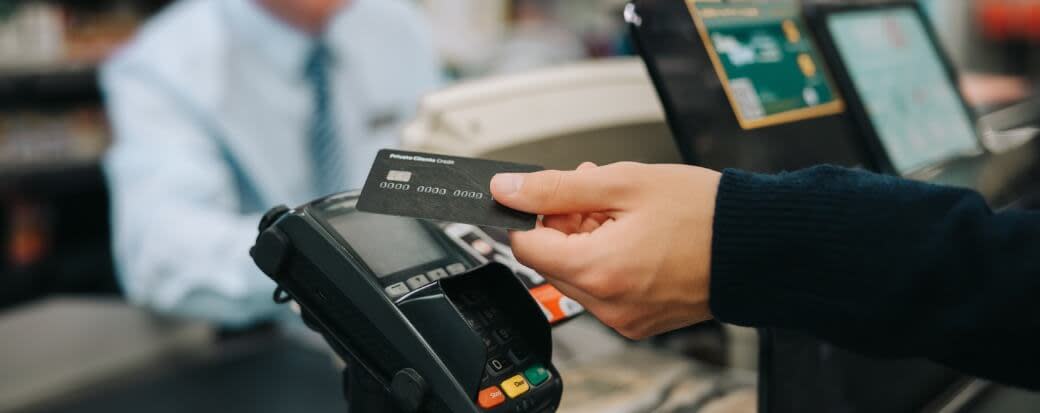How to Buy a Money Order With a Credit Card

Money orders can be used to pay rent or send money, and you have a receipt to track your money in case it’s lost or stolen. And while most money orders are purchased with cash or checks, some may wonder: Can you buy a money order with a credit card?
While you technically can buy a money order with a credit card, finding a retailer that allows you to do so may be difficult — and you’ll incur fees for the purchase. In most cases, it’s not recommended.
What Is a Money Order?
A money order is a paper document that guarantees payment for a specific amount. Money orders are issued by companies such as Western Union and MoneyGram through retailers, including supermarkets, drug stores, and some department stores.
You must pay for money orders up front. So, unlike a check, a money order can’t bounce, making payment guaranteed.
Advantages and Disadvantages of Money Orders
Money orders are popular because they have several advantages. First, a money order is traceable, unlike cash, and also replaceable. If your money order is lost or destroyed and you’ve retained the receipt, then it can typically be replaced. Money orders are also a great way to send money to someone who doesn’t have a checking account.
Money orders have some disadvantages to consider, as well. For starters, most money orders have limits, such as $1,000 or even just $500. If you need to send more money than that, you’ll have to purchase multiple money orders. There’s also a small fee that comes with each money order purchase, which you also must make in person. Additionally, there’s also a small chance that someone could counterfeit a money order.
Pros of Money Orders | Cons of of Money Orders |
|---|---|
Traceable | Maximum amount is often just $1,000 |
Don’t need a bank account to purchase one | Each money order carries a fee |
Funds are guaranteed and can’t “bounce” | Some money orders can be counterfeited |
Can You Purchase Money Orders With a Credit Card?
Most places that sell money orders will only accept cash or debit cards. In the rare case that a money order is purchasable with a credit card, the transaction will likely be coded as a cash advance due to how credit cards work.
When taking a cash advance from your credit card — one of the ways you can use credit cards — you’ll usually incur a cash advance fee. This fee is often either $10 or 5% of the amount of each transaction, whichever is greater. On top of that, cash advance transactions are usually subject to a much higher cash advance APR. And the interest charged isn’t eligible for a grace period, meaning interest will begin to accrue immediately after the transaction.
So while you may be able to purchase a money order with a credit card, it can be a very costly way to do so.
Where Can You Buy a Money Order?
There are many places where you can purchase a money order, including:
The United States Postal Service
Drug stores
Supermarkets
You may also find money orders at discount stores such as WalMart, and at financial centers that specialize in short-term lending, such as payday loans.
Recommended: How to Get Cash Back With a Credit Card
What Are the Costs of Getting a Money Order With a Credit Card?
When you’re able to purchase a money order with a credit card, you’re charged the standard money order fee, which is typically about a dollar or less. But because money orders purchased with a credit card are considered to be cash advances, you’ll also typically incur a cash advance fee, which is often $10 or 5% of the amount of each transaction, whichever is greater. You’ll see this fee when you read your credit card statement.
Also, cash advance transactions are usually subject to a cash advance APR, which is typically higher than the standard purchase APR. And there isn’t a grace period offered, so interest for cash advances begins to accrue from the date of the transaction.
Using Money Orders Wisely and Avoiding Scams
Money orders can be useful, but it’s important that you’re careful when purchasing or accepting them as payment.
You should never send a money order to someone with whom you aren’t familiar. For example, it’s never a good idea to send a money order to purchase goods from a company that advertises online, as you’ll have little recourse if the company never delivers the product that you paid for.
Other scams are targeted at those who accept money orders. This can include buyers who send money orders that you may only realize are fake after you’ve shipped the product. You may also encounter scammers who give you a money order, but then ask for a refund in cash. Only later do you realize that the money order was fake.
And as with cashier’s checks, you should never accept a money order that’s in excess of the amount owed and then refund the difference in cash. This is another way that scammers use fake money orders.
The Takeaway
While it may be possible to purchase a money order with a credit card in some places, it’s rarely a good idea to do so. The costs of incurring a cash advance from your credit card will almost certainly exceed the value you receive from the transaction. By taking a closer look at both the advantages and drawbacks of money orders and the different ways to purchase them, you can make the best decision for your needs.
If you don’t end up using your credit card to purchase a money order, it’s still important to find a credit card that suits your needs. Lantern by SoFi has a wide variety of credit cards at its marketplace, and you can apply for credit card preapproval.